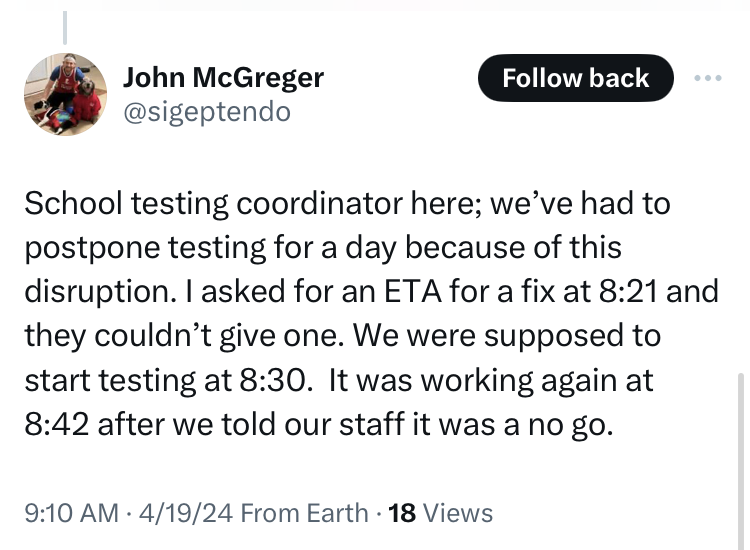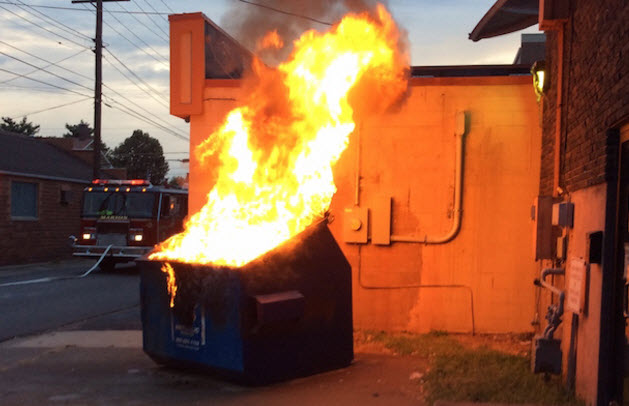Yesterday, Williamson County Director of Schools Mike Looney issued a statement saying his district would not be administering the high school end of course tests in addition to the suspension of the grades 3-8 TNReady tests.
Commissioner McQueen is not very happy about that. She served notice to Looney and all other directors that refusing to administer the EOC would be considered a violation of state law.
Here’s the email she sent to Directors of Schools:
First, I want to thank you for your partnership and support as we have worked together to implement and administer the first year of a new assessment. I know you share my disappointment and frustration with the inability of our vendor to deliver on this higher quality assessment in grades 3-8, and I truly appreciate your patience and leadership.
I want to reiterate that the state’s termination of its contract with the testing vendor Measurement Incorporated (MI) and the related suspension of grades 3-8 testing does not apply to high school and End of Course (EOC) exams, and, therefore, all school districts are required to administer these assessments.
The state of Tennessee and local districts are under an obligation under both federal and state law, as well as state board of education rules and regulations, to administer annual assessments to our students. My decision to suspend grade 3-8 testing was based on the impossibility of testing and made in close consultation with the U.S. Department of Education (USDOE). Based on the fact that testing in grades 3-8 was not feasible due to the failure of MI to meet its contractual obligations, the USDOE has acknowledged that the department made a good faith effort to administer the assessments to all students in grades 3-8. Unlike grades 3-8, districts are in receipt of EOC exams and the challenges associated with the delivery of grades 3-8 do not exist.
Because EOC exams have been delivered, students should have the opportunity to show what they know to measure their progress toward postsecondary and the workforce. Failure to administer the high school assessments will adversely impact students who will not only lose the experience of an improved, high quality test aligned to our higher standards but also the information we plan to provide to students, parents and educators relative to student performance. In addition, districts will eliminate the option for their teachers to use this year’s student achievement data as part of their teacher evaluation if the data results in a higher score.
Because of these factors and because state or district action to cancel high school testing would willfully violate the laws that have been set forth relative to state assessment, neither the state nor districts have the authority to cancel EOC exams. Districts that have taken action to cancel EOC exams or communicated such action are in violation of the law and should rescind this action or communication.
What Does This Mean?
In response to the Murfreesboro City School Board considering refusing to administer Phase II of TNReady, the Department of Education issued a statement noting that doing so would be considered a major violation of state law and that withholding state funds was a possible penalty.
McQueen doesn’t say what the penalty would be if districts like Williamson proceed with their refusal to administer the EOCs, but she may well attempt to impose a financial penalty.
In her email, McQueen says:
Failure to administer the high school assessments will adversely impact students who will not only lose the experience of an improved, high quality test aligned to our higher standards but also the information we plan to provide to students, parents and educators relative to student performance.
Just what students want and need: Another test. Some have proposed using the ACT battery of tests as the high school testing measure rather than the current EOC structure.
McQueen also says:
In addition, districts will eliminate the option for their teachers to use this year’s student achievement data as part of their teacher evaluation if the data results in a higher score.
While the idea of flexibility seems nice, I want to reiterate that any data gleaned from this year’s test is invalid as a value-added indicator of teacher performance. As such, there’s no useful information to be gained relative to teacher performance from this year’s EOCs. Put another way, McQueen’s argument about depriving teachers of an opportunity is invalid.
While the use of value-added data to assess teacher performance is of limited usefulness under optimum conditions, under this year’s transition, it is clearly and plainly invalid. If the goal of using such data is to improve teacher performance, why use data that yields essentially no information?
I have not yet seen a response from Dr. Looney or any other directors. But a fight could be brewing.
For more on education politics and policy in Tennessee, follow @TNEdReport







